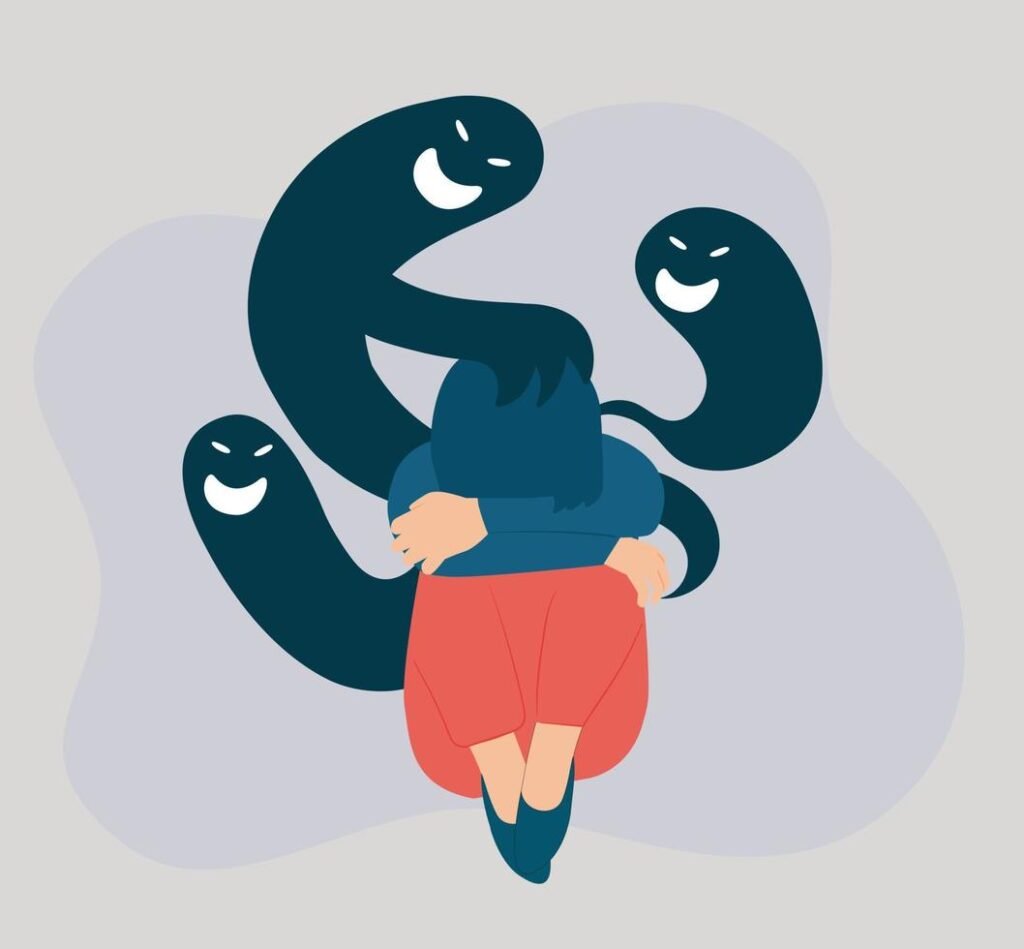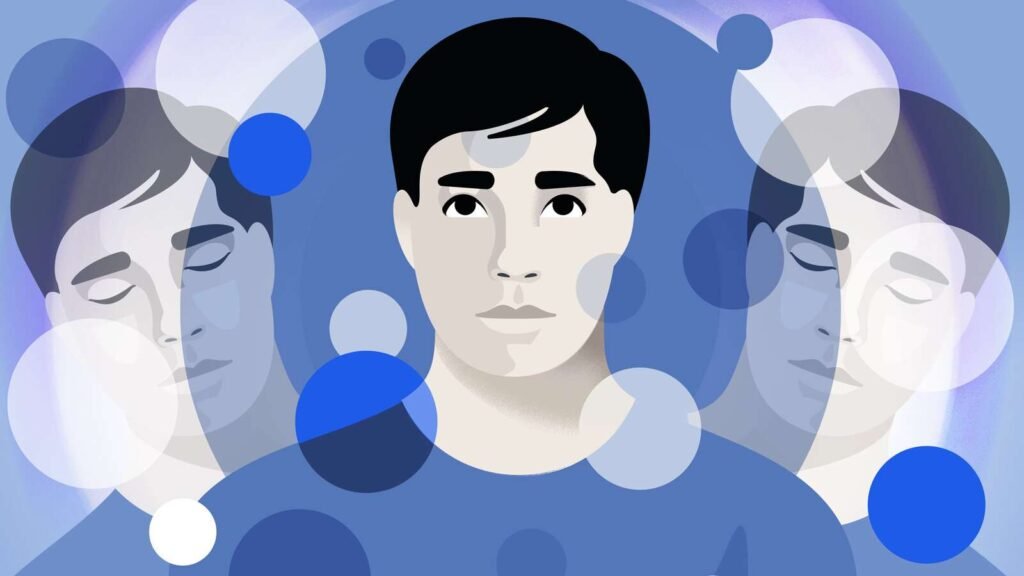Understanding Schizophrenia: The Most Devastating Mental Illness
Schizophrenia mental illness is widely regarded as one of the most severe and misunderstood psychiatric disorders. Affecting approximately 0.32% of the global population—around 24 million people worldwide—it is a chronic brain condition characterized by delusions, hallucinations, disorganized thinking, and impaired social functioning.
This mental illness typically emerges in late adolescence or early adulthood, significantly disrupting a person’s ability to function, pursue education or career goals, and maintain relationships. While myths and stigma still surround schizophrenia, understanding its clinical features, risk factors, and treatment options can empower patients and families to manage the condition more effectively.
Personal Story: Henry Cockburn’s Journey with Schizophrenia
For Henry Cockburn, a 20-year-old art student, the first signs of schizophrenia were subtle yet alarming. One day in February 2002, he embarked on a barefoot journey from the University of Brighton back to his childhood home in Canterbury. Halfway through his walk, he became convinced he was being pursued by an unseen, malevolent force.
Desperate to escape, he plunged into the frigid waters of the Newhaven Estuary. Fishermen rescued him before hypothermia could take hold. This incident marked the beginning of an eight-year struggle with schizophrenia, during which he spent time in multiple psychiatric institutions and gradually learned to manage his symptoms with therapy, medications, and support systems.

What is Schizophrenia?
Schizophrenia is a chronic brain disorder that alters perception, thought processes, and behavior. Key features include:
- Delusions: False beliefs not grounded in reality.
- Hallucinations: Sensory experiences without external stimuli, often hearing voices or seeing things others do not.
- Disorganized Thinking and Speech: Difficulty organizing thoughts, leading to fragmented or nonsensical speech.
- Negative Symptoms: Reduced motivation, emotional flatness, and social withdrawal.
Experts highlight that schizophrenia is not a “split personality” disorder. Its name, coined by Swiss psychiatrist Paul Eugen Bleuler in 1908, means “split mind,” but it refers to a fragmentation of thought processes rather than multiple personalities.
Why Schizophrenia is Misunderstood
Misperceptions about schizophrenia are widespread. Many believe individuals with the disorder are dangerous, violent, or unpredictable. While some symptoms may lead to disorientation or agitation, most individuals with schizophrenia are more likely to be victims rather than perpetrators of harm.
Stigma and misunderstanding can delay diagnosis, worsen outcomes, and isolate patients. Increasing awareness, education, and compassionate treatment are crucial to improving quality of life for individuals with schizophrenia. https://my.clevelandclinic.org/health/diseases/9312-schizophrenia
Causes and Risk Factors
The exact cause of schizophrenia is not fully understood, but research points to a combination of genetic, neurodevelopmental, and environmental factors:
- Genetics: Family history of schizophrenia significantly increases risk.
- Brain Chemistry: Imbalances in neurotransmitters such as dopamine and glutamate may contribute.
- Neurodevelopmental Factors: Complications during pregnancy, preterm birth, or early brain development issues may predispose an individual.
- Substance Use: High-potency cannabis and other mind-altering drugs, especially during adolescence, can increase vulnerability.
- Stress and Trauma: Early-life trauma or chronic stress can trigger or exacerbate symptoms.
Symptoms and Clinical Presentation
Symptoms often emerge between ages 15 and 25 and may escalate in severity if untreated. They are commonly grouped into three categories:
Positive Symptoms
- Hallucinations
- Delusions
- Disorganized thinking
- Agitation or unusual behaviors
Negative Symptoms
- Social withdrawal
- Emotional flattening
- Lack of motivation
- Reduced speech output
Cognitive Symptoms
- Difficulty concentrating
- Impaired decision-making
- Memory challenges
- Problems with executive functioning
Early recognition is critical, as timely intervention can prevent worsening of symptoms and improve long-term outcomes.
The Impact of Schizophrenia on Daily Life
Schizophrenia can disrupt every aspect of a person’s life, including education, career, and social relationships. Many patients experience:
- Difficulty maintaining employment
- Strained family or romantic relationships
- Isolation and loneliness
- Co-occurring mental health disorders such as depression or anxiety
Despite these challenges, treatment and structured support can help patients live meaningful, fulfilling lives.
Treatment and Management Strategies
While schizophrenia is not curable, it can be effectively managed through a combination of approaches:
Medications
- Antipsychotics: Help reduce delusions, hallucinations, and thought disturbances.
- Newer Agents: Designed to minimize side effects while improving efficacy.
Psychotherapy and Behavioral Therapies
- Cognitive Behavioral Therapy (CBT): Helps patients challenge false beliefs and manage hallucinations.
- Social Skills Training: Supports rebuilding social functioning.
- Family Therapy: Provides education and support for caregivers.
Lifestyle and Supportive Interventions
- Structured routines
- Healthy diet and exercise
- Peer support groups
- Vocational rehabilitation programs
Adherence to medications is often a challenge due to side effects or anosognosia (unawareness of illness). Multidisciplinary care and ongoing monitoring are essential for optimal outcomes.

Schizophrenia and Cannabis Use
Emerging research shows a link between cannabis use and schizophrenia risk, particularly among adolescents. High-potency THC may disrupt the endocannabinoid system, which plays a role in brain development, neurotransmitter regulation, and cognitive function.
While cannabis is not a direct cause of schizophrenia, it can precipitate or worsen symptoms in susceptible individuals. Patients and caregivers should discuss substance use with healthcare providers as part of treatment planning.
Living with Schizophrenia: Coping and Recovery Schizophrenia mental illness
Recovery from schizophrenia is possible with proper treatment, support, and coping strategies. Henry Cockburn’s story illustrates that patients can regain independence, manage hallucinations, and pursue personal goals.
- Building a trusted support network
- Developing coping mechanisms for stress and triggers
- Engaging in creative or vocational activities
- Maintaining adherence to treatment plans
Recovery is a journey, not a destination. While schizophrenia can be debilitating, many patients lead fulfilling lives with therapy, medication, and strong social support.
Conclusion: Understanding and Supporting Schizophrenia Patients
Schizophrenia is a complex, chronic mental illness that affects millions globally. Misunderstandings, stigma, and delayed intervention contribute to its devastating impact. However, early diagnosis, evidence-based treatment, and social support can significantly improve outcomes.
Education, advocacy, and compassionate care are essential for helping patients live productive, meaningful lives. By increasing awareness, reducing stigma, and promoting research, society can better support those affected by schizophrenia.




